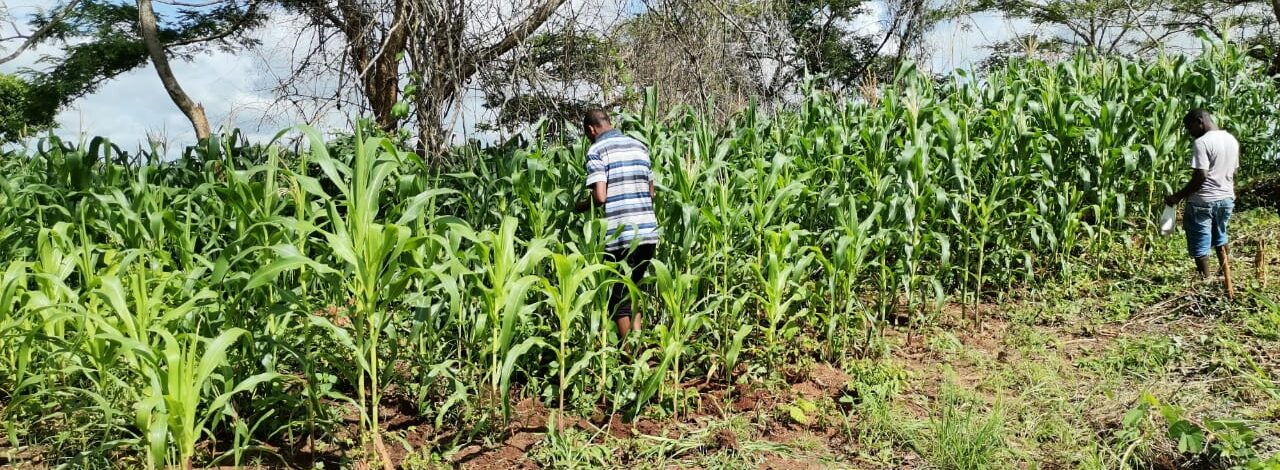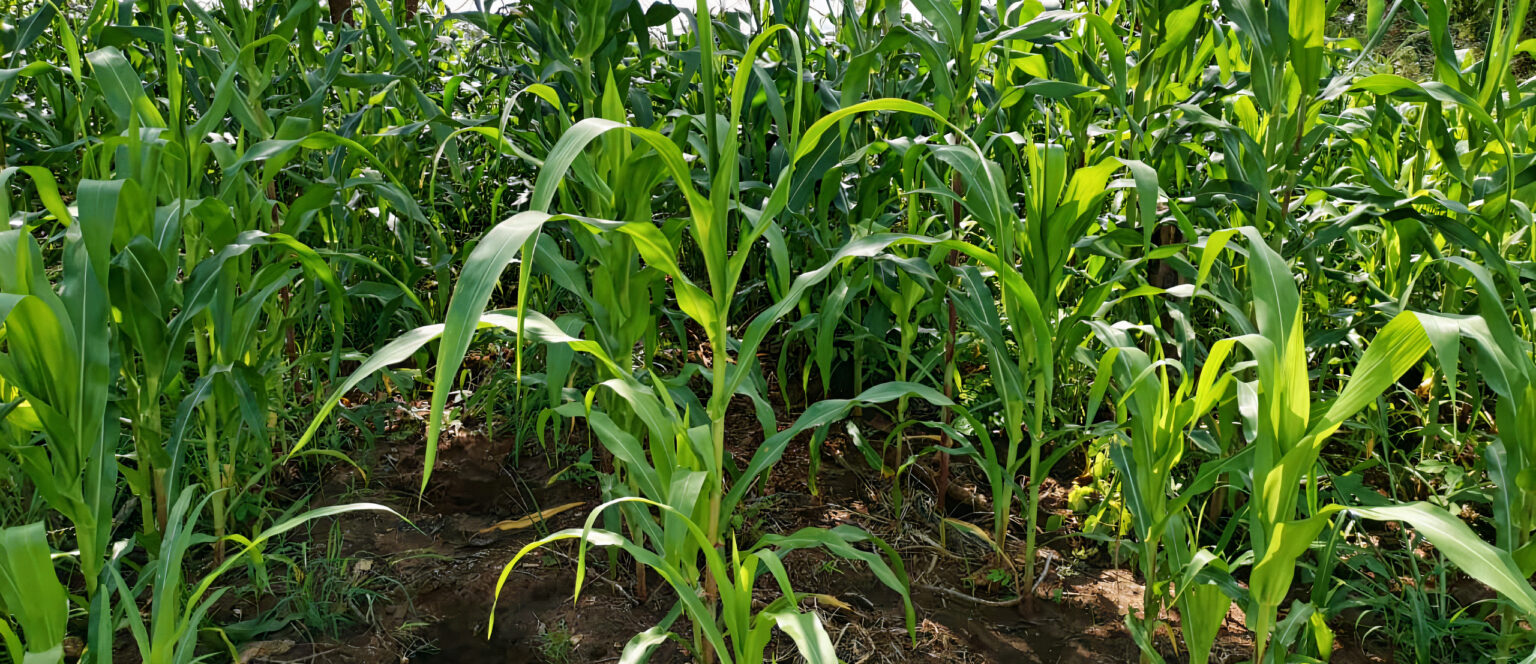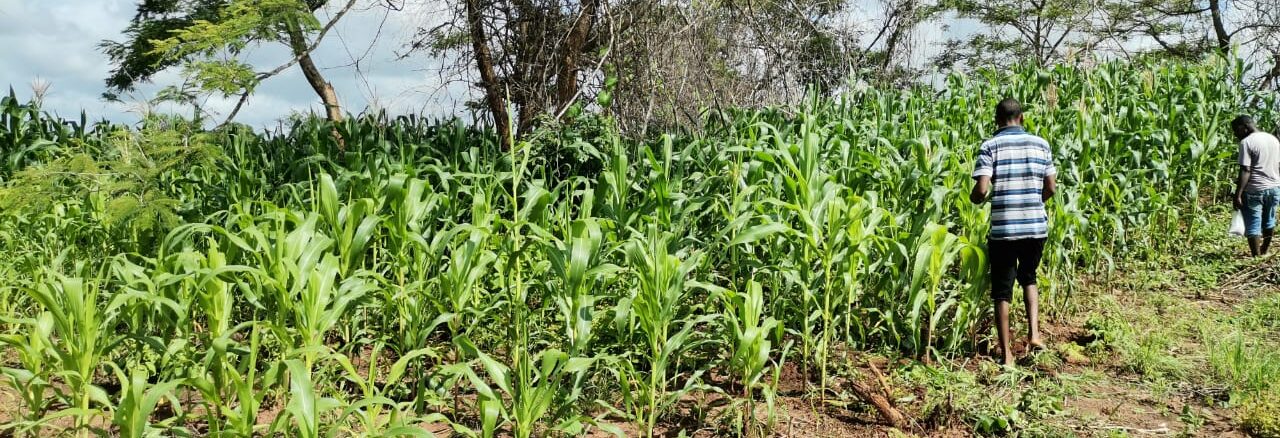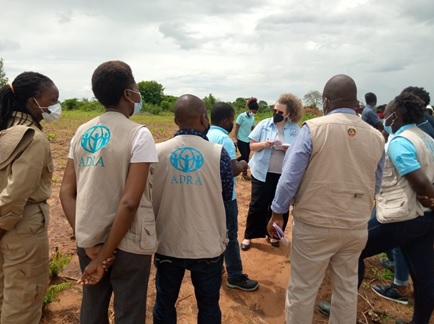Nomcer
Be an Advocate
Speak up, stand up, sign up-your voice is vital, and you can be an advocate right now with a simple signature. Our Adventist-led movement will help ensure that every child, everywhere has access to quality education so they can fulfill their God-given potential. Sign your name and stay in touch for more Advocacy opportunities.
Marcone is one of the resettlement centers located in Montepuez, which is about 219 km from Pemba City, and almost 7 km from Montepuez district along the road to Balama district. The distance from the main road to the site is almost 3 km. The site has 13 demonstration plots, where internally displaced people, mostly farmers, have been practicing and learning climate-smart farming technologies

Marcone is home to around 2,870 displaced families, 1,750 of whom are receiving agricultural inputs, especially corn and cowpea seeds, hoes, rakes and watering cans. They are also benefiting from the distribution of hygiene kits. For the winter of this year (2022), the families have already received vegetable seeds for the second agricultural campaign, which include tomato, onion, carrot, cabbage and kale seeds.

These are the interventions that ADRA Mozambique, in partnership with USAID, has been developing as part of the NOMCER project in response to the humanitarian crisis caused by the terrorist attacks in the northern region of Cabo Delgado province. The beneficiaries of this assistance have been applying the knowledge of intelligent agriculture that they learned in the demonstration fields to their own production fields, as they adapt to the new environment far from their areas of origin. The results are encouraging. The displaced now know about harmful agricultural practices and the advantages of conservation agriculture, and the representative of the displaced, Genito Antonio Buanculo, speaks of significant improvements.
"In the past, we used to prepare the land by cutting down the trees and waiting for them to dry out so we could burn them, but here we have learned not to burn the trees and grass in the fields because it harms the environment." In addition, Genito pointed out, "we have now realized the importance of using the leaves and grass instead of burning them, so that we can fertilize the land by conserving moisture and obtain more production." Buanculo also explains how the displaced will feel from now on. "The desire to return home is greater because our relationship with the host communities is not as good as in the past.
their areas of origin, but the armed conflicts have been delaying the realization of this dream. All the displaced people are interested in returning home because of the situation in which they live. There is no good relationship between the displaced and the host communities. There are many conflicts over the distribution and loan of camps. The displaced prefer to return home rather than stay in the resettlement centers waiting for assistance." To minimize these conflicts, ADRA has adopted a more conflict-sensitive approach by engaging local leaders in raising awareness of greater social cohesion.

USAID Mozambique visits the NOMCER project in Montepuez
Represented by Melanie Luick-Martins, the USAID Mozambique visit entered the Marcone resettlement center on February 9. During the one-day visit, Melanie interacted with ADRA field technicians as well as beneficiaries, seeking to understand the extent to which assistance is leveraging and alleviating the needs of IDPs and the challenges for further support.
After taking notes and listening to the beneficiaries, Melanie said: "I have taken note of the needs highlighted as priorities and I will present them to the donors and convince them to support the other projects in order to minimize the situation. Because it won't be possible to solve all the problems, I will work closely with other humanitarian agencies that are especially active in supplying these materials (hygiene kits, agricultural inputs and WASH items)," promised Melanie on behalf of USAID Mozambique.

During USAID Mozambique's visit to Montepuez, Cabo Delgado province, ADRA was represented at the highest level by its Country Director, David Masinde and Program Director, Vicente Adriano as well as the National Emergency Projects Manager, Rumbidzai Musengi. Funded by USAID through the Bureau of Humanitarian Assistance (BHA), the Northern Mozambique Complex Emergency Response (NOMCER) project has been underway since September 2021 as part of the CHEMO Consortium, made up of five different NGOs, namely Plan International, World Vision International (WVI) and Humanity and Inclusion (HI), and Food for the Hungry (FH), as well as ADRA. Among other objectives, the NOMCER project aims to strengthen the resilience of the most vulnerable populations to natural disasters and climate change, as well as providing life-saving support and contributing to efforts to sustain and restore the lives of internally displaced people and host communities affected by armed violence and climate shocks in the provinces of Cabo Delgado and Nampula.

